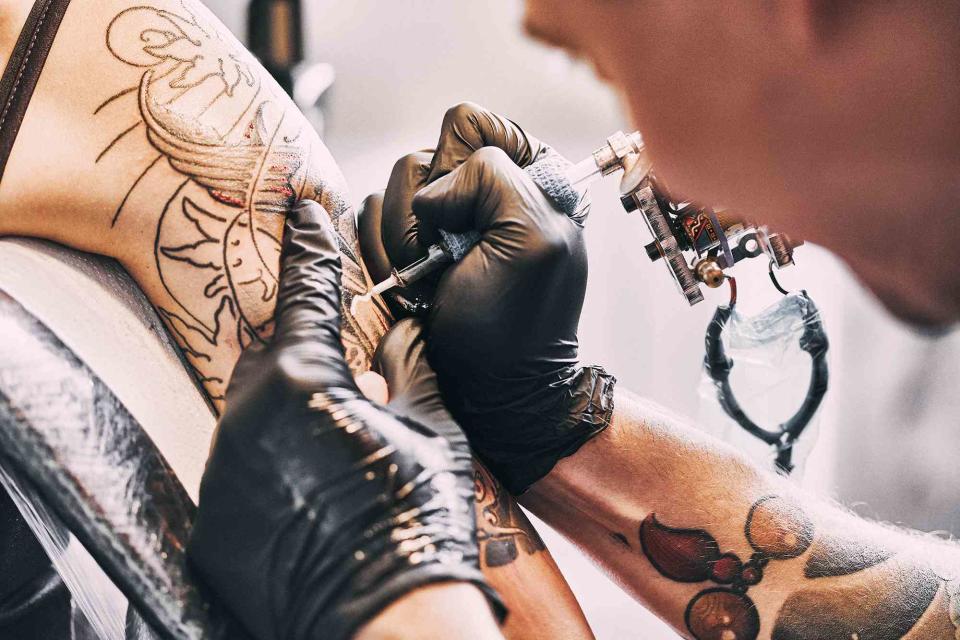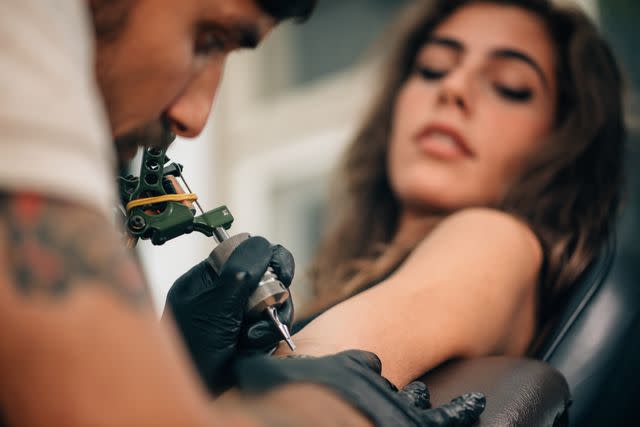Tattoos Increase Risk of Developing Lymphoma by 21%, New Study Finds
A new study revealed that getting a tattoo — regardless of size — increases the risk of developing lymphoma, a type of blood cancer

Getting a tattoo, regardless of size, increases the risk of developing lymphoma by 21%, according to a new study.
Researchers from Lund University in Sweden analyzed 11,905 participants — 2,938 of whom had lymphoma, a type of blood cancer, between ages 20 and 60. Participants who had lymphoma and participants who were part of the control group completed a questionnaire about tattoos.
The study — published May 21 in eClinicalMedicine — found that the risk of developing lymphoma was 21% higher among those who were tattooed. The risk of lymphoma was also highest in individuals who had their first tattoo less than two years prior.
Additionally, researchers found that there is no evidence of an increased risk with larger sized tattoos.
The study found that the most common types of cancer were diffuse large B-cell lymphoma and follicular lymphoma.
“After taking into account other relevant factors, such as smoking and age, we found that the risk of developing lymphoma was 21 percent higher among those who were tattooed,” Dr. Christel Nielsen, study author and Lund University professor, said in a statement. “It is important to remember that lymphoma is a rare disease and that our results apply at the group level. The results now need to be verified and investigated further in other studies and such research is ongoing.”
Related: Study Reveals Potential Health Risks Associated with Tattoos

Getty Images
Never miss a story — sign up for PEOPLE's free daily newsletter to stay up-to-date on the best of what PEOPLE has to offer, from celebrity news to compelling human interest stories.
“We already know that when the tattoo ink is injected into the skin, the body interprets this as something foreign that should not be there and the immune system is activated,” she continued. “A large part of the ink is transported away from the skin, to the lymph nodes where it is deposited.”
Researchers said they will now examine whether or not there is a link between tattoos and other forms of cancer and inflammatory diseases.
“People will likely want to continue to express their identity through tattoos, and therefore it is very important that we as a society can make sure that it is safe,” said Nielsen. “For the individual, it is good to know that tattoos can affect your health, and that you should turn to your health care provider if you experience symptoms that you believe could be related to your tattoo.”
According to the Mayo Clinic, tattoos can also make skin prone to infections, since they breach the skin's barrier. Oftentimes, people may have allergic reactions to the tattoo dyes, which can cause rashes. While not common, tattoos can also lead to MRI complications, because the pigments can interrupt the image's quality.
In August 2023, the Pew Research Center released data showing that 32% of adults have a tattoo. Among those, 22% have more than one tattoo on their body.
For more People news, make sure to sign up for our newsletter!
Read the original article on People.


